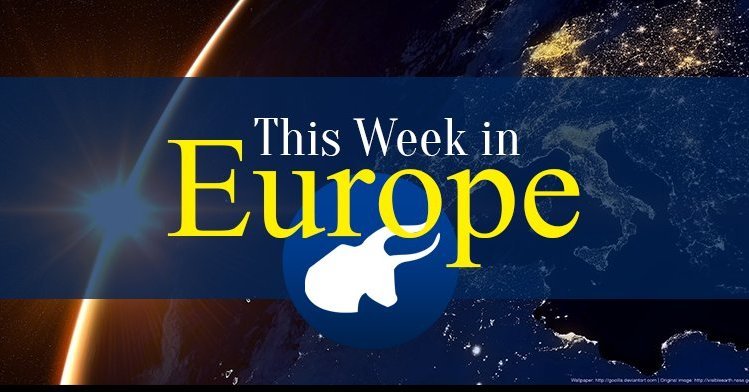Plans for “Visegrad Bank”
Poland and Hungary, currently at odds with the rest of the EU member-states and the Brussels officials for their backtracking on democratic values and rule of law, plan to set up a development bank together with the Czech Republic and Slovakia. Strongly supported by the Polish and Hungarian governments, the initiative remains to convince Bratislava and Prague. This Wednesday, Polish PM Mateusz Morawiecki went on his first official bilateral visit since taking office - to Budapest.
Tougher hate speech rules on internet platforms
On Wednesday, French president Emmanuel Macron stated that liberal democracies need to develop the ability to protect themselves from Russian propaganda. This would be done by giving authorities power to remove or block social media content during elections. Macron promised increased transparency, the publishing of the identity of those who place ads and a limit to the number of ads. Foreign TV stations would also come under the authority of the French media watchdog, the CSA. This week as well, AfD (Alternative for Germany) deputy leader Beatrix von Storch was blocked from Twitter after criticising the Cologne police for sending a New Year’s tweet in Arabic. The block comes after the adoption of a new law against hate speech. On Thursday, Greece’s neo-nazi Golden Dawn party was also suspended from Twitter after the platform decided to crack down on online hate groups.
Bulgarian president vetoes anti-corruption bill
On Tuesday, as his country was launching its period of the rotating 6-month EU presidency, Rumen Radev, the Bulgarian president, has vetoed an anti-graft bill, stating that the loopholes within it would undermine it completely. The bill was meant to set up an anti-graft unit, keeping it however under the control of the parliament. The veto was taken as a sign that Bulgaria would suffer more under the pressure of endemic corruption.
20,000 migrants returning home, Austria wants curfew
The International Organisation for Migration stated that by the end of January 2018, 20,000 migrants that were stuck in Libya will have been returned to their home countries. The process is financed by the EU in an effort to prevent migrants and refugees from crossing the Mediterranean in order to reach Italy. At the same time, Austrian vice-chancellor and far-right leader Heinz-Christian Strache proposed that refugees and migrants be subjected to a curfew and held within barracks while in Austria.
New challenger for Erdogan
Meral Aksener, former interior minister, was the one credited with gathering much of the support for the “No” campaign in the referendum of last April regarding enhanced presidential powers. Currently campaigning for early presidential elections together with her newly founded Iyi Party (Good Party), the 61-year old right-wing politician plans to build a base in order to challenge Erdogan’s presidency. She predicts that Mr. Erdogan will call early presidential elections for July 15. This week, Turkish president Recep Tayyip Erdogan is in France, mending ties with the EU after jailing 150 journalists.
Optimism in France, content in Germany
According to a recent survey, the French have become more optimistic about the future than at any point in the last 8 years. 59% of the country’s citizens were optimistic for 2018, 15% higher than in 2012. Supporters of Emmanuel Macron were the most optimistic, while those of the far-right National Front were the most pessimistic.
In Germany, according to a Die Welt poll, 65% of people believe Merkel is still a good chancellor, although 67% also think her best days are behind her. The same week, the German chancellor declared that “27 states in Europe must be persuaded more strongly than ever to stand united as a community.”


Follow the comments: |
|
